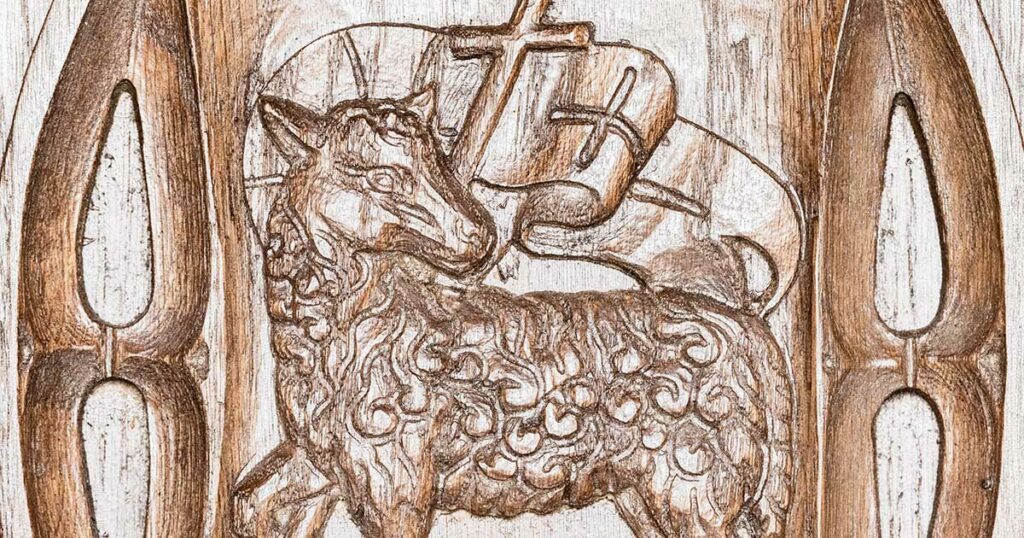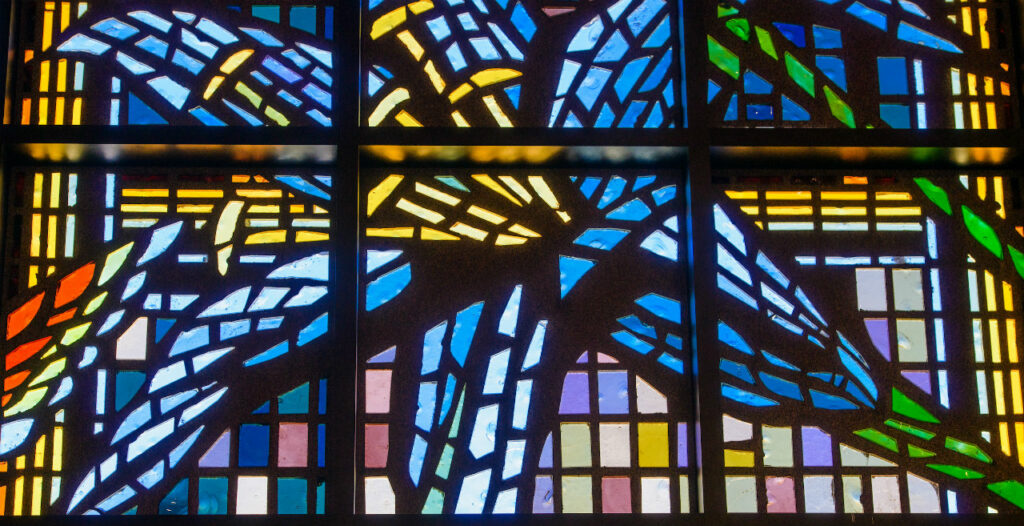About a year ago my family decided to raise a few sheep for fun and to teach our kids more about God’s creation. Since we live in rural Kansas, this was an easy undertaking, and we figured that it would help our kids gain a practical knowledge of where food comes from.
I was caught off-guard, however, after our first harvest last fall. As we were enjoying a tasty lamb stew, my then three-year-old son looked up from the table and asked, “Why did we have to kill the lamb?” In a rare moment of clarity, I somehow managed to answer: “Because we only live if something else dies for us. All food that we eat died for us so that we can live. That’s why we thank God for it.” My older children jumped on the obvious connection: “Just like Jesus, the Lamb of God.” “Yes,” I said, “just like Jesus.”
Food from God
You see, food doesn’t come from the store. It comes from life in the fields and forests. It doesn’t come from us. It comes from God, the author of life: “Know that the Lord, He is God; It is He who has made us, and not we ourselves; We are His people and the sheep of His pasture” (Psalm 100:3, NKJV). The more disconnected we are from the source of the food we eat, the more prone we are to forget to thank God for the plant and animal life He creates so that we may eat it and live.
Not everyone can or needs to raise their own food. For Christians, even more important than remembering the source of our daily bread is remembering the source of our eternal life. After all, we only live because Jesus, the Lamb of God, died for us (John 6:53:54): “So Jesus said to them, ‘Truly, truly, I say to you, unless you eat the flesh of the Son of Man and drink his blood, you have no life in you. Whoever feeds on my flesh and drinks my blood has eternal life, and I will raise him up on the last day’” (John 6:53–54).
Substitutionary atonement
Again, you don’t have to raise your own food to know what Christ has done for you on the cross. The Bible teaches that Jesus is our substitute and Savior. In fact, God has taught this from the beginning. When Adam and Eve sinned, God instituted the sacrifices by clothing our first parents with skins (Gen. 3:21). Imagine the horror when Adam and Eve first saw the blood and death that their sin had brought into the world. God killed so that they could live and be clothed.
When Abraham went to sacrifice his son Isaac, God substituted a ram (Gen. 22:13). When the Lord later visited Egypt in judgment, He substituted the blood of the Passover lamb for the lives of His people.
Numbers 8 teaches that all the firstborn belong to God because of this Passover, but that God selected the Levites to substitute for them in serving at the tabernacle. The Levites and priests were responsible for placing the sins of Isarel on the sacrificial animals that were brought to the temple. All of this substituting and sacrificing for sin pointed forward to Christ, who took our sins and died once for all so that we can live.
We call this the doctrine of substitutionary (or vicarious) atonement. It means that Jesus died in our place so that we can live. He took our sins, and we are clothed with His righteousness.
Not just a theory
Some people still struggle to understand why Jesus had to die for us. In fact, many liberal theologians reject the Bible’s teaching of substitutionary atonement. They dismiss the truth that God had to die in our place for our sins, calling it a “theory.” Don’t fall for that trick. The cross of Christ is no theory.
It is one thing to have a theory about where food comes from. We all understand theoretically where food comes from. People eat chicken day even if they have never seen one before. It is another thing to raise an animal and take its life for yours. Then the connection of one life being substituted for another quickly becomes more than theoretical. We realize our great need for life. When Christians see the cross, we know where our salvation comes from. Without sacrifice, we cannot go on living, even as “without the shedding of blood there is no forgiveness of sins” (Heb. 9:22).
And so, when we ponder the mystery of the cross upon which the Lamb was slain on that Good Friday so long ago, we should ask that simple question. We should ask, “Why did God have to kill His Son? Why did the Lamb have to die?” Answer: To substitute for me. My sins put Him there. In order to live, I need a substitute. Indeed, to live eternally, I need an eternal substitute: “He entered once for all into the holy places, not by means of the blood of goats and calves but by means of his own blood, thus securing an eternal redemption” (Heb. 9:12).
Photo: LCMS Communications/Erik M. Lunsford





“Why did God have to kill His Son?” Answer: Because God is just, and because God is love.
For Him to continuously overlook disobedience would be to indicate that it really doesn’t matter to Him how people behave toward Him or toward one another, and that would be unjust. But for him to mete out to us what we fully deserve would leave us destined for destruction, because we cannot do anything to justify ourselves. And so,
God put forward [Jesus] as a propitiation by his blood, to be received by faith … so that he might be just and the justifier of the one who has faith in Jesus. — Romans 3:25-26 ESV
Humankind was made to be fruitful (Gen. 1:28), to God’s glory (John 15:8) and our joy (John 15:11). The atoning sacrifice of Jesus means that the potential for fruitfulness and joy has not been obliterated by human sin but is sustained by our justification and all the other gifts that God continues to give (Romans 12:6; 2 Peter 1:3-8).